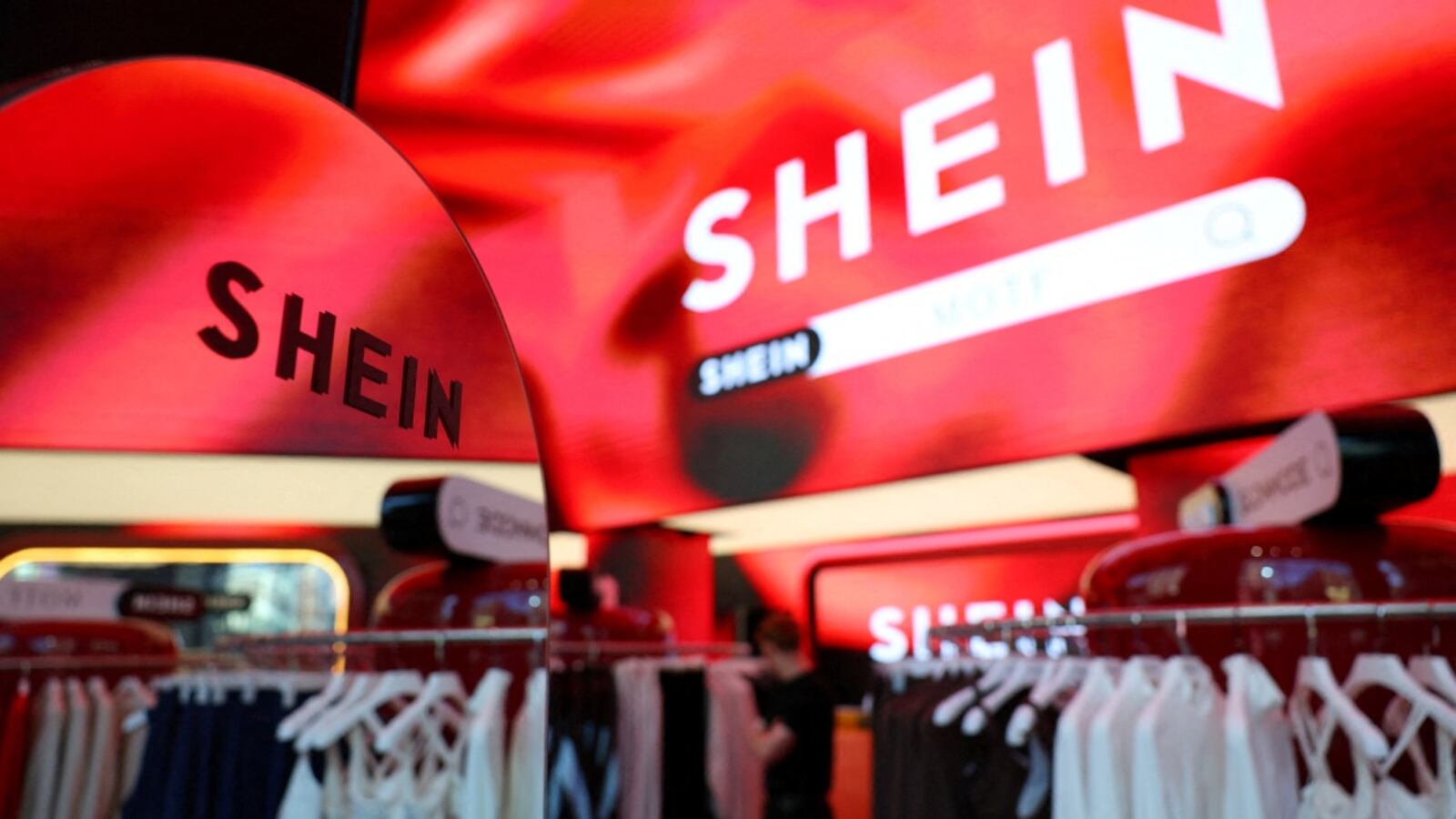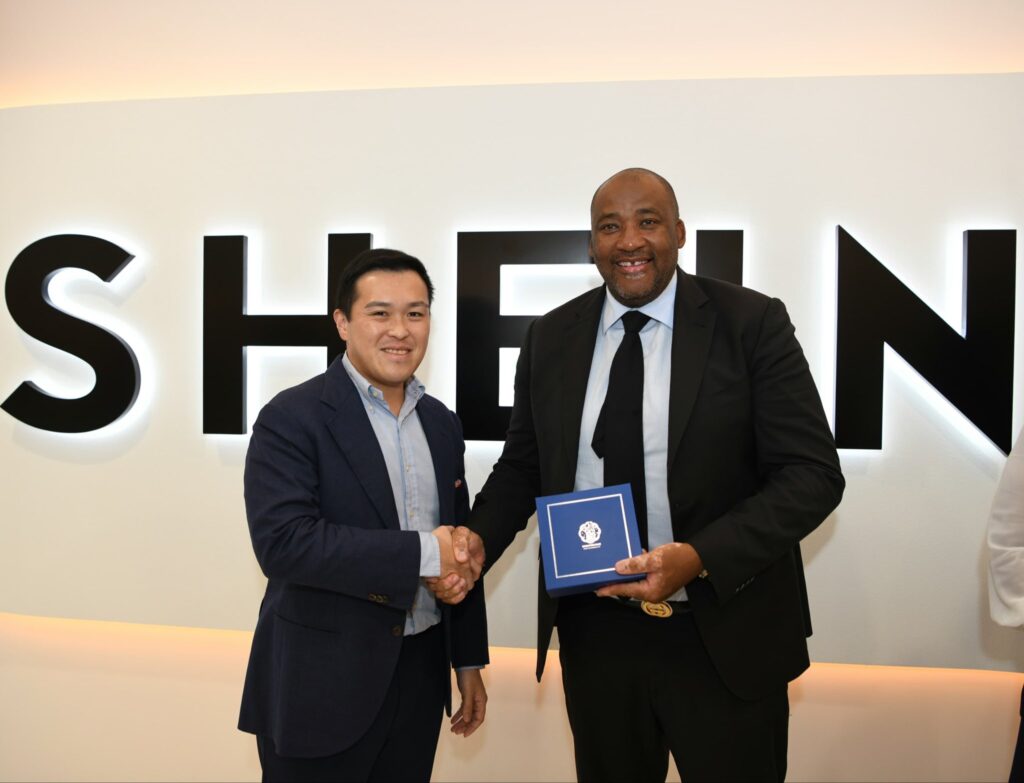
Shein's logo is seen at its pop-up store at immersive retail space Future Stores, ahead of its opening on September 26, in London, Britain. Image: Isabel Infantes.
(The Post News)– Chinese fast-fashion giant Shein is under fire internationally and locally, facing dual controversies that have ignited debate over ethics, trade, and national identity.
Globally, Shein has drawn criticism for selling hyper-realistic sex dolls on its platform, while in South Africa, Minister of Sport Gayton McKenzie has faced backlash for engaging with the retailer amid growing calls to protect and promote local fashion production.
France Pushes Back Against Shein’s Sex Doll Listings
Shein has come under fire in France for selling hyper-realistic child sex dolls on its platform, sparking outrage among lawmakers and advocacy groups.
According to Reuters, foreign minister Jean-Noel Barrot has accused the company of promoting products that may violate national laws on obscenity and child protection, especially as some listings allegedly resemble minors or feature exaggerated sexual traits.
Barrot said in an interview with the radio station Franceinfo that the online clothing store was in breach of the European trading rules. He called for the continent commission to take action, as the matter has gotten out of hand.
On Wednesday, France took steps to ban Shein due to illicit product listings, leading the company to pause its marketplace operations in the country while it reassessed its third-party seller policies.
Prior to this, Shein had already discontinued the global sale of all sex dolls.
A spokesperson for the European Commission confirmed to Reuters that the bloc’s executive body had contacted Shein in response to the complaint from France.
They warned that breaching EU regulations could prompt additional action, though the Commission currently has no plans to suspend platforms across the EU. Gunther Oettinger, a Shein advisor and former European Commissioner, urged the company to maintain transparency and make adjustments if necessary.
McKenzie’s Shein Engagement Sparks Local Fashion Uproar
Meanwhile, it has been almost a month since McKenzie met with Shein executives during the South African Focus Week in Singapore. The meeting aimed at exploring potential collaborations between Shein and South African designers and athletes.
McKenzie said that Shein had committed to supporting local sporting initiatives and empowering young creatives. However, the engagement triggered fierce backlash from South Africa’s fashion community.
Critics argue that Shein’s business model threatens local jobs, exploits labor, and promotes unsustainable fashion practices.

According to IOL, @FrankMadikologa remarked that meeting with SHEIN was not only tone-deaf but also inappropriate, arguing that discussions about textile and apparel industry partnerships should be handled by the Department of Trade, Industry and Competition (DTIC), not the Department of Arts and Culture.
“Supporting a fast-fashion giant that undermines local manufacturing directly contradicts SA’s Textile Masterplan,” he wrote on X.
McKenzie was also criticized by the Economic Freedom Fighters (EFF), who submitted a formal complaint to the Portfolio Committee on Trade, Industry, and Competition, alleging that McKenzie disregarded established trade and industrial policies.
EFF national spokesperson Sinawo Thambo questioned whether McKenzie’s department holds the mandate to engage in trade negotiations and highlighted the ongoing challenges within South Africa’s clothing, textile, and manufacturing sectors.
He emphasized the need to leverage global platforms to benefit local talent, but many believe true empowerment lies in investing in domestic manufacturing and ethical fashion.



